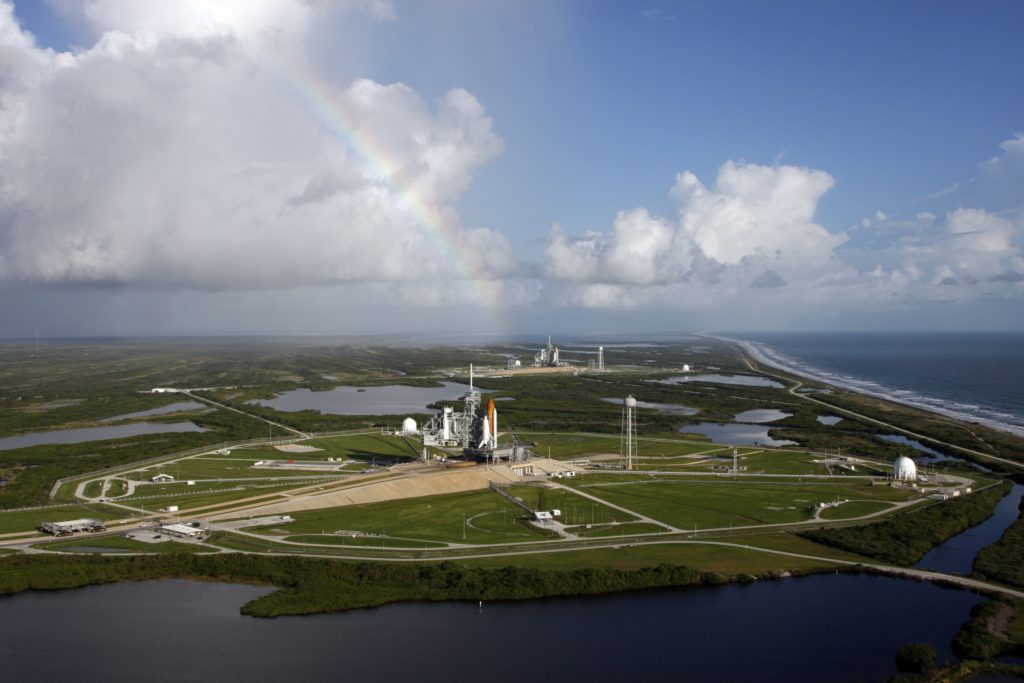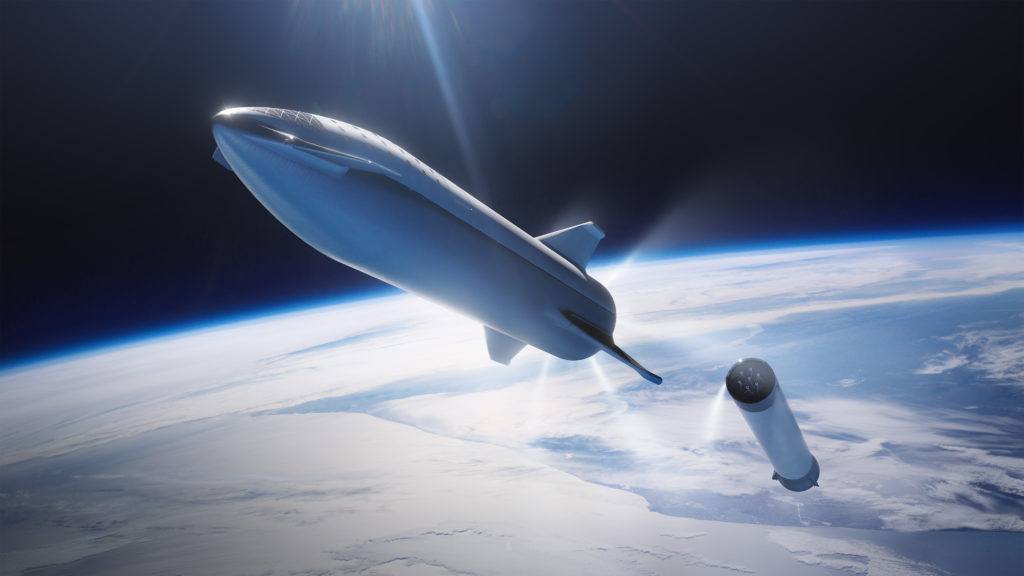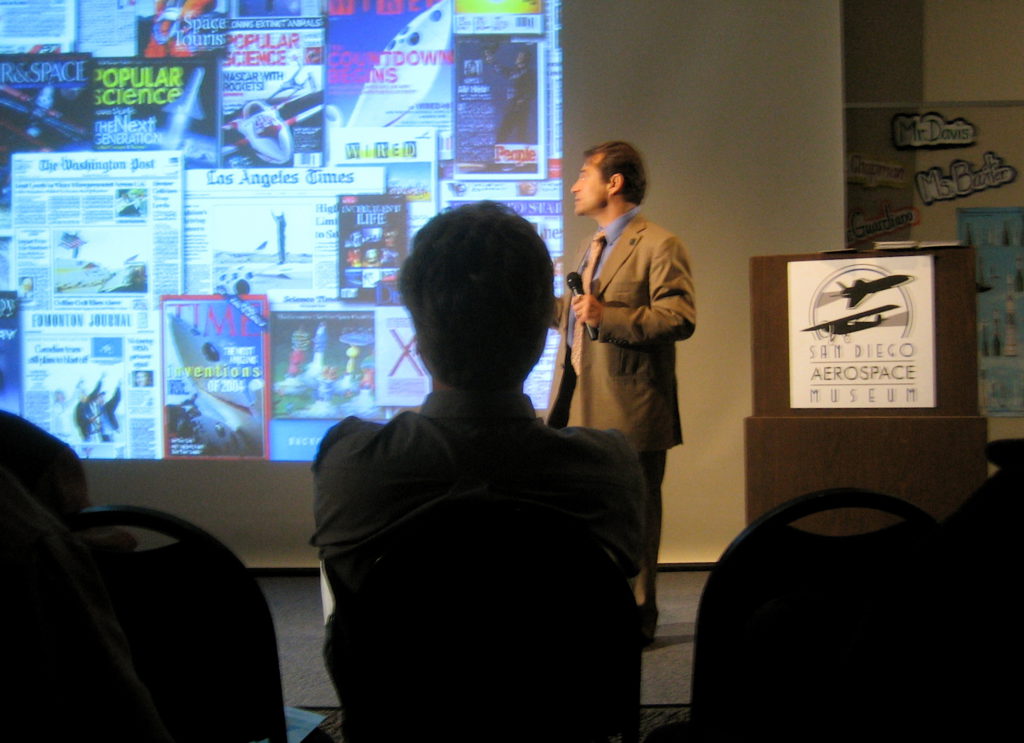
When Russia annexed Crimea in 2014 tensions with the USA hit levels not seen since the Cold War.
Speeches were made and motions proposed at the UN and NATO, and sanctions were placed on a host of Russian government entities, businesses and individuals.
International cooperation between the two countries virtually stopped.
At least, on Earth.
On the International Space Station (ISS) astronauts and agencies (from several countries, but primarily the USA and Russia) continued to collaborate effectively; keeping the station operational and pushing forward with a variety of missions and research activities[1].
This sort of cooperation is a defining characteristic of the space industry. The challenges and opportunities we face are far too large for most organisations to work on alone.
Cooperation at this scale requires mutual trust and an ability to define, set and work towards common goals and expectations – how do you manage these vital criteria in today’s competitive industry?
To take a closer look, let’s consider one area that is going to require cooperation on a truly global (at least!) scale in the coming years.
The fastest, highest and newest way to travel
SpaceX has always shared a grand vision of what it aims to achieve – but Elon Musk also knows it won’t realise its full potential alone.
For example, at the 2017 International Astronautical Congress he unveiled details of the company’s plans to facilitate the colonisation of Mars – a goal that has captured global attention and focussed the activity of SpaceX ever since.
As part of this presentation Musk also discussed a compelling idea to help develop the required technology and make it financially viable; super-fast long-distance travel between two points on Earth, via space[2].
A couple of years later this concept seems to be catching on.
Just last month the bank UBS released a report claiming that the point-to-point rocket travel market could be worth $20 billion in as little as 10 years[3].
It says this new travel option will cannabalise part of the long-haul flight industry by offering a faster, and more exciting, option for the 150 million travellers who flew such routes last year.

But point-to-point travel only works if you have somewhere to depart from and travel to.
It only works if stakeholders in different countries are willing to cooperate effectively to build the infrastructure and systems needed.
Expectations of the future
When an innovation requires new infrastructure in order to succeed, there is always pressure to raise expectations[4].
That’s not to say that Elon Musk is hyping up the revolutionary potential of SpaceX’s technology – but it certainly isn’t being talked down, as this video shows:
SpaceX sees itself as the transport provider – by painting an exciting picture of the future, with a clear financial incentive, it hopes to catalyse and enable the development of a global ecosystem that will use its rockets.
You can’t be shy about your tech if this is your goal.
You need to communicate energy and optimism, hint at the scale of the potential rewards on offer and demonstrate a commitment on your part to help the industry realise them.
But raising expectations, legitimately, in this way will only get you so far.
In fact, while generating zero excitement means you’ll just be ignored, creating too much hype results in a lack of trust in who you are and what you do[5].
Without trust, it will be harder to find partners to work with right now.
And this is critical – to really play an active role in building a new sector it is important to get into the detail and engage with what is going on today.
Building tomorrow today
The importance of cooperation is evident in the spaceport sector.
Different stakeholders with overlapping areas of interest are developing mutually-beneficial partnerships to lay the foundations of a new global industry.
The Global Spaceport Alliance (GSA) is a great example.
In 2018 the organisation ran a summit that brought together technical and legal experts from 19 different spaceports around the world to foster collaboration. And they’ll do it all again later this year.
Both new and existing networks give spaceport professionals an opportunity to shape the sector. As Dave Ruppel, Director of Colorado Air and Space Port explains:
“One of the key things that I have found in working with and talking to other spaceports is that we all provide unique capabilities that can help to strengthen the global spaceport system.”
“Whether it is the ability to handle different types of launch technology, the ability to support specific types of Research and Development, or the opportunity to connect for point to point flights in the future, there is tremendous value in enhancing and encouraging the development of the global spaceport ecosystem.”
“We will certainly compete in some cases but we will also be able to share best practices and growth opportunities.”
He also points out that a key challenge that needs addressing to enable future growth is;
“The development of a shared framework for certifications so that spaceports and launch providers will have clear expectations and can more easily work with each other.”
Spaceports also have a great opportunity to bring people together, as explained by Brownsville Mayor Tony Martinez.
“The SpaceX launch site in Brownsville, Texas sits on the U.S.-Mexico border, as space is a boundless frontier, the exploration and development of the space ecosystem unites humanity to merge our collective talents and resources regardless of nationality, living on the border has shown us that we go farther together.”
An international spaceport network throws up all sorts of challenges – just to name a few:
- Who will be in charge of air traffic control?
- How will it work alongside traditional aviation?
- What new legislation and regulatory bodies will be needed?
- How will the actual transport technology work?
- What facilities are needed on the ground?
- Who has responsibility for safety, risk assessments, insurance etc.?
- How can point-to-point rocket transport work with ground-based travel and logistics operations?
Companies willing to participate in such early-stage discussions will help to lead and shape this industry.
But they will need to be able to tread a careful line between trust and hype.

The balancing act
Let’s quickly recap on the issue that companies in emerging sectors face:
- Raising expectations is required in order to catalyse the activities needed to develop new industries; such as a global spaceport network for example.
- But there will always be pressure to raise expectations too high. And hyping up your technology can lead to a lack of trust.
- At the same time, large-scale space ventures and business opportunities will only develop through cooperation. And this cooperation demands trust between stakeholders.
So businesses have a tricky balancing act to perform – garnering enough interest and attention while also staying accurate and relevant.
Dr. David Alexander OBE is Director of the distinguished Rice Space Institute which works closely with Houston Spaceport, the Johnson Space Center and NASA on a range of projects in the field. He explains that trust will be vital in the development of a global spaceport network;
“The growing international spaceport network is currently outpacing the demand for launch services. While each spaceport has unique strengths, it is important that we work together to build this new industry and then compete when the demand merits.”
“This requires trust and cooperation as we share ideas and best practices to make each of us stronger and more competitive in the future. Such cooperation is particularly important between international partners as common policies and practices need to be promoted to help address the the larger legislative and export control issues.”
So how can this trust be achieved? What do companies and organisations need to do in order to boost cooperation?
Well, here are three ideas that can help.
Information earns trust
Every year the Edelman Trust Barometer features insights based on extensive research into trust around the world.
The 2019 report shows the vital importance of information.
There is a huge gap in the trust placed in companies and institutions by the informed compared to the mass population.
Without accurate and understandable information or experience a person is more likely to distrust an organisation.
We have seen this in other sectors too.
People with prior experience of AI for example tend to trust the results it produces more than those who have never used it[6]. And research also shows that trust in the internet increases by a person the more they interact with it[7].
Of course, it isn’t practical (in the majority of cases) for other potential clients or partners to use space technology before they buy it – but you can tell them more about it.
Tell your company’s story through content marketing and you can shape the narrative of your brand.
Be as open and transparent about your products as commercial agreements and pressures will allow and you’ll reap the benefits of increased trust and attention for what you are trying to achieve.
Tolerance earns trust
Trust is a two-way street.
If you want an external partner to have faith in your company’s abilities you need to show that you also believe they will deliver.
In fact, to develop really effective collaborations (the sort necessary to build a global spaceport network) partners need to be willing and able to accept mistakes, delays, bad ideas and other failures.
It sounds obvious, but in high-pressure business situations it can be hard to forgive partners when things go wrong, let alone communicate openly about the reasons why.
This is a concept known as psychological safety and research shows that it is vital for businesses who want to develop high-performing teams[8].
Next time you have an opportunity to show that you trust your partners will deliver, particularly when something (within reason!) has gone wrong, consider taking it.
Credibility earns trust
Peter Diamandis is a name you are most probably familiar with if you are in the NewSpace sector.
He founded the International Space University, the X Prize Foundation and a host of other companies and organisations that have helped move the industry forward.
Diamandis is also the author of bestselling books on entrepreneurship and big ideas, and one of the key variables he believes is crucial for the success of any new venture is credibility.

As an example, when he launched the initial X Prize challenge (a competition widely regarded as helping to kick-start the private space sector), Diamandis didn’t actually have the prize money.
But, by launching, as he puts it, “above the line of super-credibility” he was able to attract the finance needed.
How did he do it?
Prior to the launch Diamandis worked hard to accumulate a broad collection of well-known influencers and partners willing to endorse the competition.
He says that the spectacle of launching the X Prize alongside many of them helped boost its image straight away and made it possible to secure the financing soon after.
He described the launch in this podcast:
“I don’t have one astronaut, I have twenty astronauts standing on stage with me, I have the head of NASA, the head of the FAA and the Lindbergh family with me on stage, announcing this 10 million dollar prize. Did I have any money? No. But around the world it was front page news…and it was for me a huge risk.”
Being able to demonstrate this sort of credibility will help your company build trust in what you do.
But let’s not gloss over the last 8 words of Diamandis’ quote above, this can be a risk, but hopefully you will find it a risk worth taking.
In conclusion
Partnerships have been very important to us at satsearch.
We have consistently looked for ways to collaborate with established organisations in a manner that would help both them and our own community.
As we have built the global marketplace of space products, services, companies and missions the support we have received from agencies, businesses and other partners around the world has been invaluable.
By sharing the relevant aspects of our story (without succumbing to hype), cooperating with partners in good faith, and building credibility in what we do, we have been able to develop trust in our platform and activities.
And now we’re excited to see how organisations around the world are able to manage trust and expectations in order to develop new ecosystems and opportunities that can benefit us all.
[1] Is Space Cooperation Keeping the U.S. And Russia Together?
[2] Elon Musk proposes city-to-city travel by rocket, right here on Earth
[3] Super fast travel using outer space could be $20 billion market, disrupting airlines, UBS predicts
[4] On the relation between communication and innovation activities: A comparison of hybrid electric and fuel cell vehicles
[5] Hype and Public Trust in Science
[6] People don’t trust AI – here’s how we can change that
[7] Trust in the Internet as an experience technology
[8] High-Performing Teams Need Psychological Safety. Here’s How to Create It

